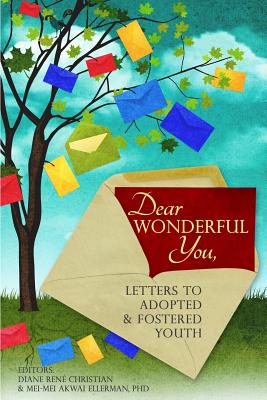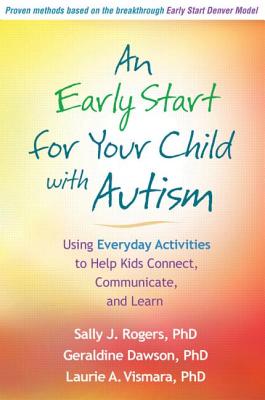
By Fraser Therapists • best autism books, best autism books for kids, best mental health books for kids, best books for children with disabilities, best books for disabled children, best books for parents about autism, best books for foster parents, best books for parents with adopted children, best adoption books, best foster care booksbooks for children with special needs, best autism books adults, best mental health books adults, best books for • May 28, 2020
As Minnesota’s largest and most experienced provider of autism and early childhood mental health services, Fraser knows a lot about serving children and families with special needs. We reached out to some of our Fraser experts who specialize in mental health, autism, pediatric therapy and adoption support. Our therapists shared some of their favorite books for children, teens, parents or anyone who wants to better understand the unique challenges faced by people with special needs.
Fraser has partnered with Bookshop.org, which is an online bookseller that supports independent bookstores. Bookshop contributes a portion of all their sales to independent bookstores throughout the U.S. By purchasing one of these books from the Fraser – Minnesota page on Bookshop, we receive 10% of every sale. That’s right, you can support independent book stores and Fraser by buying a book here.
Here are our top recommendations.
Books for Children ages 1-8
1. “Fiona Flamingo” by Rachael Chu (emotions, ages 1 and up)
Fiona learns to embrace what makes her unique and different.
2. “How Big Are Your Worries Little Bear” by Jayneen Sanders (anxiety, ages 3-9)
Little Bear needs Mama Bear’s help to make his big worries feel smaller.
3. “A Terrible Thing Happened” by Margaret M. Holmes (trauma, ages 4-7)
Sherman sees something bad happen, and a counselor helps him feel better after.
4. “All My Stripes” by Shaina Rudolph and Danielle Royer (autism, ages 4-8)
Zane the zebra learns about his stripes and how each one, including his “autism stripe,” makes him who he is.
5. “When Sophie Gets Angry–Really, Really Angry” by Molly Bang (emotions, ages 5-7)
Sophie gets angry, and the book shows what helps her to calm down.
6. “Uniquely Wired” by Julia Cook (autism, ages 5-8)
Zak has autism. He describes his love of watches and how he feels his senses a little different than other kids. This is a good book for children with autism to share with friends, siblings or teachers.
7. “Keep Your Ear on the Ball” by Genevieve Petrillo (being blind, ages 8 and up)
Davey is blind, so no one in his class thinks he will be good at kickball. He shows them that he can do it with their help.
Books for Teens and Adults
The book provides everyday strategies for your young child with autism. It’s used in the Fraser Early Beginnings program.
2. “The Reason I Jump: The Inner Voice of a Thirteen-Year-Old Boy with Autism” by Naoki Higashida (autism)
Naoki Higashida, a thirteen-year-old boy with autism, answers questions about how his mind works and why he does things like jump or flap his hands.
3. “Uniquely Human: A Different Way of Seeing Autism” by Dr. Barry M. Prizant (autism)
The book explains why your child might be having behaviors and how to address these effectively.
4. “The Whole Brain Child” by Daniel J. Siegel and Tina Payne Bryson (parenting)
The book teaches strategies for dealing with certain behaviors and how to encourage emotional and cognitive development.
5. “It Takes Two to Talk: A Practical Guide for Parents of Children with Language Delays” by Elaine Weitzman (language)
The book provides information for encouraging children to expand their language and communication
Adoption and Foster Care Books
Families with adopted children or foster children experience unique issues. Fraser experts recommend the following books for children, teens and adults who are dealing with concerns from adoption or the foster care system.
Books for Children ages 1-8
1. “Pouch!” by David Ezra Stein (ages 3 months to 2 years)
Joey learns independence from Mama so that he can try new things.
2. “Riley the Brave” By Jessica Sinarski (ages 3 and up)
Riley tries to conquer his fears and overcome feelings of shame, fear and sadness.
3. “The Invisible String” by Patrice Karst (ages 4-8)
This book teaches that the bond between children and parents can support children experiencing separation anxiety or grief.
4. “Once I was Very, Very Scared” by Chandra Ghosh Ippen (ages 4-8)
A little squirrel tells his friends about being scared and learns they’ve been scared before, too. They all talk about what helps make them feel calm and safe.
Books for Teens and Adults
1. “Dear Wonderful You: Letters to Adopted and Fostered Youth” by Diane Rene Christian (ages 12 and up)
This book consists of letters written by adult adoptees and adults who were fostered to provide support for all adopted and fostered youth.
2. “Consequences, Logic, and Control” by Heather Forbes
The book teaches parents about the impact of traumatic experiences on children, and some common behaviors associated with trauma. It also provides strategies for how to respond to these behaviors with love.
3. “The Connected Child: Bring Hope and Healing to Your Adopted Family” by Karyn B. Purvis, David R. Cross and Wendy Lyons Sunshine
The book provides support for families who have adopted a child and are experiencing difficulties with attachment, special needs or how to discipline their child productively.
4. “Beneath the Mask: Understanding Adopted Teens” by Debbie Riley
The book discusses how to support your adopted teen as they find their identity and process the complexities of adoption.
5. “Adoption Is a Lifelong Journey” by Kelly DiBenedetto
Charlie, the narrator of the story, was adopted. He shares his adoption story as a first-person narrative of his thoughts and feelings about the process.
If you or your child is struggling, you can also reach out to Fraser for help. Call 612-767-7222 to schedule an appointment.
